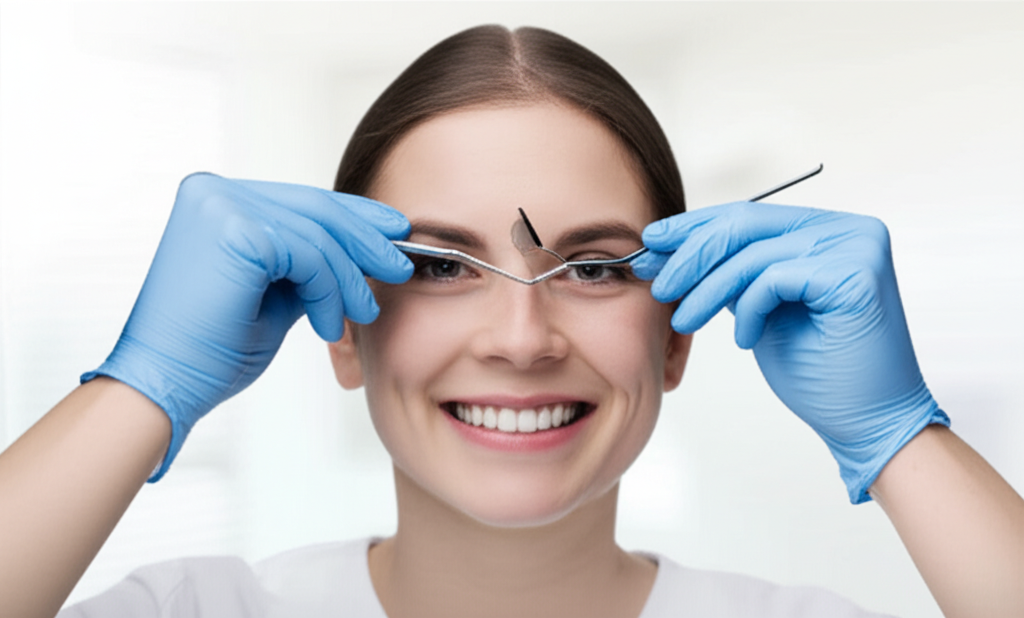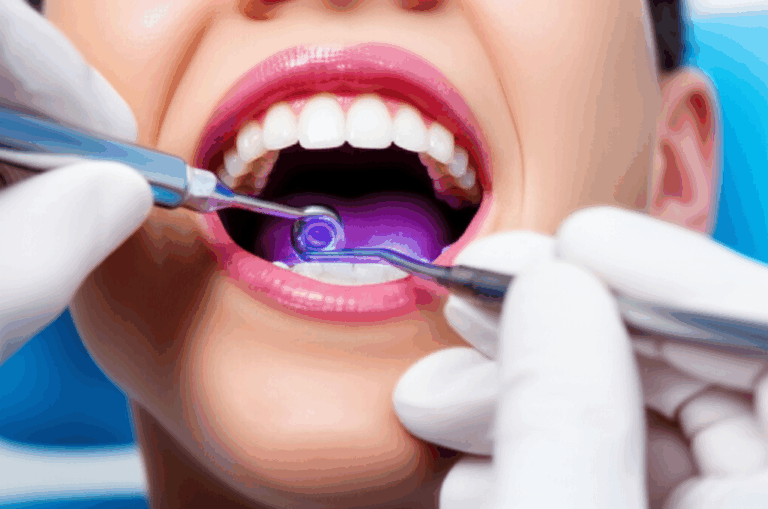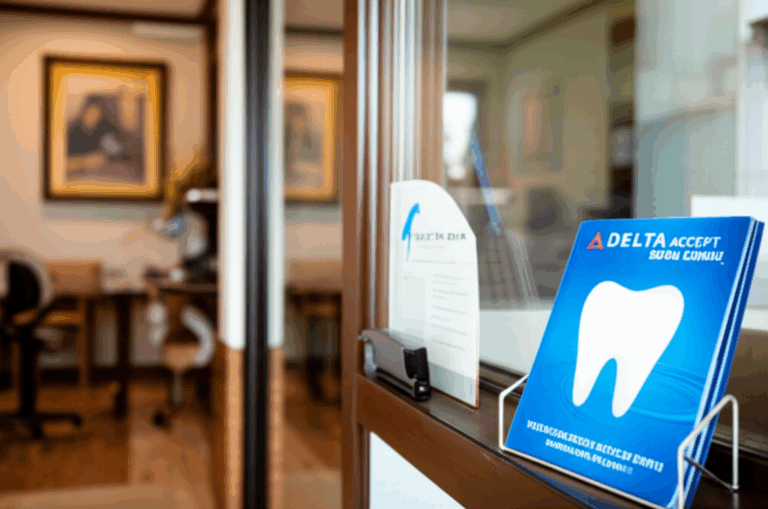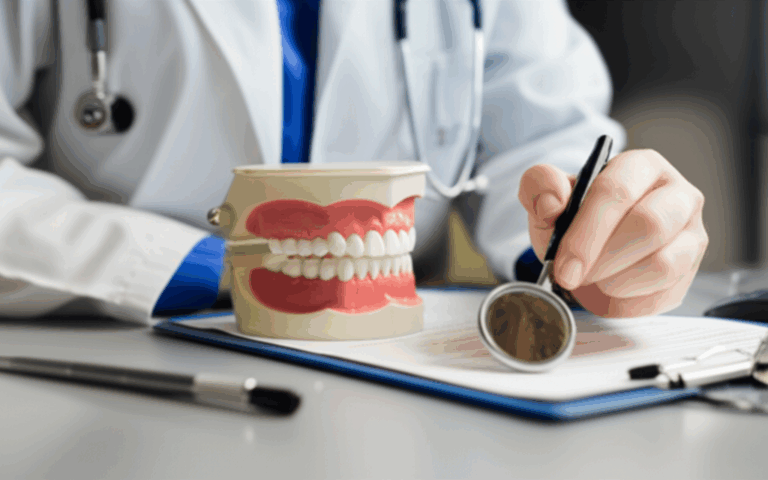
What Degrees Do Dentists Have? Your Essential Guide to Becoming a Dental Professional
That Big Question: What Does It Really Take to Become a Dentist?
You might be sitting at your kitchen table, coffee nearby, and asking yourself, “What degree do dentists have—and what steps does someone take to earn that white coat?” Maybe you’re thinking about a job in dentistry, or you’re just curious after chatting with your dentist during your last visit. Either way, you’re not alone. This question comes up a lot, and honestly, it’s a good one.
Dentistry is where science meets people skills. It takes years of school, a real wish to help people, and a lot of hard work. The world of dental degrees can look confusing at first, but once you break it down, it’s actually pretty simple. Let’s go over what these degrees mean, how dentists get them, and what the dental education path really looks like.
In This Article
- The Foundation: What Degrees Do Dentists Hold?
- DDS vs. DMD: What’s the Difference?
- Starting Out: Your Pre-Dental Journey
- Life in Dental School: Coursework and Clinical Experience
- Specializing Further: Advanced Dental Degrees and Training
- How Dentists Get Licensed and Start Practicing
- Frequently Asked Questions About Dental Degrees
- Your Healthy Takeaway: What You Should Remember
The Foundation: What Degrees Do Dentists Hold?
Let’s answer the big question first. In the United States and many other countries, dentists need to finish a real professional doctorate degree before they can treat patients. There are two types:
- Doctor of Dental Surgery (DDS)
- Doctor of Dental Medicine (DMD)
It seems a bit strange to have two different names. But here’s the thing: DDS and DMD are the same. They’re just given out by different dental schools. If your dentist’s wall says “DDS” or “DMD,” both had to go through the same tough schooling, training, and tests.
Dentists get these degrees after finishing a four-year program in dental school—after getting an undergraduate degree, which usually takes four more years. After that, there are extra things they need to do before they are allowed to treat patients.
The Educational Path at a Glance
- Bachelor’s degree (usually in a science major): 4 years
- Dental school (DDS or DMD): 4 years
- Licensing tests and state rules
- Optional extra training for specialties: 2–6 more years
So, if you count all that up, that’s at least eight years of college before a dentist can pick up a dental drill!
DDS vs. DMD: What’s the Difference?
Why Are There Two Different Degrees?
You might wonder, “Should I look for a DMD instead of a DDS dentist?” No need to worry—they’re really the same. The only reason for the two names is history and school tradition.
DDS (Doctor of Dental Surgery)
- The first dental degree, created in the mid-1800s.
DMD (Doctor of Dental Medicine)
- First given by Harvard, because they wanted all their degrees to use Latin names (“Dentariae Medicinae Doctor”).
No matter which degree your dentist has, the classes, tests, and licenses are the same. Both degrees are accepted by the Commission on Dental Accreditation (CODA) and let the dentist help patients with their teeth and mouth problems.
Key Takeaway
> Don’t get confused—DDS and DMD dentists train the same way and have the same job. The name on the diploma just depends on the school!
Starting Out: Your Pre-Dental Journey
No one gets into dental school right after high school. There’s a clear path that sets dentists up for their career.
Step 1: Undergraduate Education
Dentists first earn a bachelor’s degree, usually in something like Biology or Chemistry. Why? Because dental schools want applicants to understand the science that goes with teeth and health.
Typical Pre-Dental Classes
- Biology (like genetics and cell biology)
- General Chemistry and Organic Chemistry
- Physics
- Biochemistry
- Math
- English and Communication
Some schools also ask for classes like Psychology or Microbiology. With all those science classes, keeping good grades is important—dental schools want students with strong GPAs, especially in science.
Step 2: The Dental Admission Test (DAT)
The DAT is kind of like the MCAT for medical school or the LSAT for law. It’s a test that covers science topics, thinking skills, reading, and some math.
A good DAT score helps you get into better schools—you want to get a score at or above the national average (about 20–22).
Step 3: Getting Experience & Applying
This is where future dentists get some real-world practice:
- Shadowing dentists to see what the job is like
- Helping at free dental clinics or with public health events
- Doing research if possible—not required but a nice bonus
When applying, students use the American Dental College Application Service (AADSAS). You’ll submit your grades, DAT results, reference letters, a personal essay, and proof of your experiences.
Tip: The application process can be long and sometimes stressful. Stay organized and keep focused to make it easier!
Life in Dental School: Coursework and Clinical Experience
If you get into dental school—great job! Now comes the hard work. Dental school is four years long and full of tons of learning and practice.
Years 1–2: Science and Early Skills
You’ll be in class learning:
- Oral anatomy, how the mouth works, and mouth tissues
- Microbiology and disease (how problems can hurt the mouth)
- Pharmacology (how medicines are used in dental care)
- Dental materials (what things like fillings and dentures are made of)
You also practice on models in a lab before seeing real patients.
Years 3–4: Working With Patients
This is the most hands-on time. Students work with real people (with a teacher watching) and rotate through many departments:
- Restorative Dentistry: Fillings, crowns, bridges
- Periodontology: Gum and jaw care
- Endodontics: Root canals
- Oral Surgery: Pulling teeth and simple mouth procedures
- Pediatrics: Kids’ teeth
- Prosthodontics: Making dentures and false teeth
You’ll also learn about professional ethics and how to manage a dental office.
Accreditation: Why It Matters
Every U.S. and Canadian dental school is checked by the Commission on Dental Accreditation (CODA). This means you have to go to one of these schools to become a licensed dentist.
Fun Fact: There are more than 70 dental schools in the U.S. and over 10 in Canada. All of them have to meet the same rules to stay accredited.
Specializing Further: Advanced Dental Degrees and Training
Once you have a DDS or DMD degree you can work as a general dentist, but you can also choose to specialize. If you’ve wondered what makes someone an orthodontist or oral surgeon—this is how they do it.
Dental Specialties: The Options
There are twelve main dental specialties, such as:
- Orthodontics: Straightening teeth (like braces or clear aligners)
- Oral and Maxillofacial Surgery: Big extractions, jaw operations
- Periodontics: Treating gum disease, dental implants
- Endodontics: Working on tooth nerves and root canals
- Prosthodontics: Replacing missing teeth (dentures, bridges, implants)
- Pediatric Dentistry: Focusing on care for kids
- Oral Pathology, Oral Radiology, and Dental Public Health: Studying mouth diseases, x-rays, and general dental health
You might also hear about prosthetics and dental forensics.
What’s Involved in Specialty Training?
After DDS or DMD, you’ll need 2–6 more years for a specialty, depending on what you pick. These programs might give you a Certificate of Specialty or another degree, like a Master of Science in Dentistry (MSD).
Many specialists, like those who work with crowns, bridges, and implants, team up with a skilled crown and bridge lab or a modern digital dental lab to give their patients the best results.
Board Certification
After your specialty training, dentists can take more tests to be board certified. It’s not required, but it shows you’re an expert and serious about your job.
How Dentists Get Licensed and Start Practicing
The National Board Dental Exam (NBDE/INBDE)
Once dental school is done, new dentists take a national test—NBDE or the new INBDE. These tests check knowledge and if dentists are ready for real patients.
State License: The Final Step
Dentists need to be licensed by the state they want to work in. That usually means:
- Passing a state practical test
- Taking a law/ethics exam (called jurisprudence)
- Passing background checks
Dentists must keep learning (continuing education) to keep their license.
Career Paths: What Can You Do With a Dental Degree?
Once you’re a dentist, you have lots of job choices:
- Private practice: Your own office or with others
- Teaching or research: Helping future dentists or trying new ideas
- Public health: Helping people who need it most
- Military or government jobs: Providing care for soldiers and special groups
- Big dental companies: Working for large organizations
Dentistry usually means good pay, job security, and the chance to help people smile every day.
Frequently Asked Questions About Dental Degrees
Do I need a science degree for dental school?
Most dental schools want students with a science degree (like Biology, Chemistry, or Biochemistry), since they’ll already have the needed classes. But you can have another major if you also take those science courses first.
Is dental school as hard to get into as medical school?
They’re both tough. Dental schools watch your grades, DAT scores, and your experience. Most people who get in score between 20–22 on the DAT and have GPAs above 3.5.
Can I practice dentistry if I don’t go to a CODA-accredited school?
In the U.S., you must graduate from a CODA-accredited program to get a license.
What if I trained as a dentist outside the U.S. or Canada?
Foreign dentists usually need to finish a 2–3 year advanced standing program at an accredited U.S. dental school before they can work as a dentist here.
How much does dental school cost?
Dental school is expensive. Tuition and fees range from $40,000 to more than $90,000 a year. With living costs, total cost is easily $250,000 to $500,000.
Are there other dental jobs?
Yes! You can also become a dental hygienist, dental assistant, dental lab tech, or even find work at a china dental lab that specializes in crowns and dentures. Each job has different training and benefits.
Your Healthy Takeaway: What You Should Remember
Let’s keep it simple:
- Dentists have either a DDS or DMD—they’re the same thing.
- It usually takes at least eight years of school before a dentist can work: four years of college, then four years of dental school.
- To become a specialist means another 2–6 years of school, and maybe a master’s degree.
- Every dentist needs to pass big tests to get a license.
- Dentistry gives you good pay, job choice, and you really help people.
What Should You Do Next?
If you want to be a dentist:
- Build a strong science background in college.
- Shadow dentists or talk to some to see what the work is really like.
- Get ready for the DAT, and look for volunteer or research work that helps you learn more about helping people.
If you’re a patient looking for a good dentist:
- DDS and DMD mean the same thing.
- You can ask your dentist about where they learned, if they have a specialty, or how long they have been practicing—dentists are usually happy to answer.
- If you need things like crowns or dentures, know that dentists often work with advanced labs, like a removable denture lab, to make sure you get good results.
Remember: The best dental care choices start with good information. If you still have questions, bring them to your next visit, or check out a patient dental resource to keep learning.
Final Thoughts
Knowing what degrees dentists have isn’t just a fun fact. It shows you how much training, practice, and testing goes into every dentist’s work. This should help you feel safe—because behind every dental check-up is years of learning and caring.
Choosing a career in dentistry is a big commitment—it mixes science, detail, and real care for people. Whether you want to become a dentist or just want to know more about the person fixing your teeth, you’re asking all the right questions.
So the next time you see DDS or DMD on a door, remember: that took eight or more years to earn. Keep asking questions, keep learning, and don’t forget—your best smile is built on knowledge, trust, and honest support.








